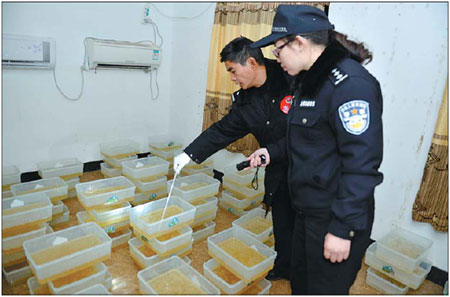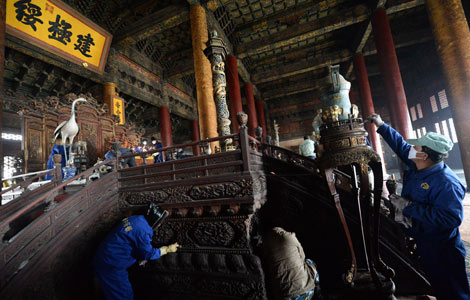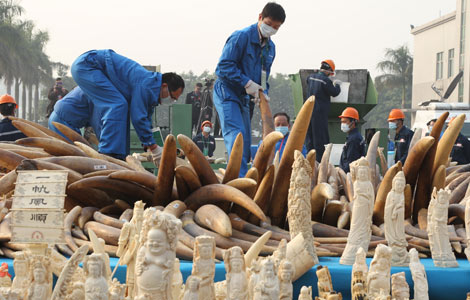How drug base fell to long arm of law
Updated: 2014-01-07 07:37
By Cui jia, He Na, Tang Yue in Beijing and Zheng Caixiong Boshe, Guangdong province (China Daily)
|
||||||||
|
Police find raw materials for 'ice' at a house in the village. Liang Guanhua / for China Daily |
Compared with the huge profits on offer, the penalties for being caught weren't severe enough to dissuade villagers from entering the drug trade, according to Lin. With the exception of 20 drug traffickers who were executed in 2004, only one other case, three years later, has resulted in the death penalty being handed down.
Besides the special geographic conditions, the fact that the trade was effectively a family business gave the dealers a high level of security, providing a major stumbling block for the authorities, who found it difficult to obtain information or gain access.
A pillar industry
A media statement released by the Guangdong police on Thursday said the production and distribution of crystal meth was the pillar industry of the village. There was a clear division of labor, with some villagers responsible for production, while other procured the raw materials or rented ships and other transport for the distribution of the drugs. Families even borrowed drugs from each another when supplies for clients ran low.
The statement also said that lookouts were posted in the village and the surrounding areas, while corrupt local officials provided information about raids. Whenever a raid commenced, the villagers were tipped off via brief, coded messages, such as 'Look out - it's going to rain!'
"Previous attempts to raid the village were countered by defiant villagers who blocked the roads, intercepted and effectively kidnapped officers, and pelted them and their vehicles with heavy rocks. Sometimes the villagers were armed with replica AK-47s and hand grenades," said Qiu when asked why the police took so long to raid a village that has long been notorious for the production of illegal drugs.
China Central Television quoted Qiu as saying that conditions in the village were also far more serious than police had realized. He pledged that more raids will be carried out across the region.
Lan Weihong, an official with the Ministry of Public Security's narcotics division, told CCTV, "after the raid, one of the important things we have to do is work with the local discipline inspection commission and procurator to deal with those who acted as protective umbrellas", referring to the officials who alerted the villagers to potential action by the authorities.
Village cadres must have been heavily involved with the gang and provided protection, otherwise the situation could never have become so serious. Cai Dongjia, for example, is not only the village Party chief, but also a deputy member of the People's Congresses of Shanwei and Lufeng, a county-level city under the administration of Shanwei.
The police said Cai's extensive network of official connections meant he was able to obtain the release of almost every gang member arrested by the authorities.
Most Viewed
Editor's Picks

|

|

|

|

|

|
Today's Top News
Huawei wows Vegas electronics show
Park says ties with China at new high
Economists remain optimistic about Chinese growth
Forbidden City to be closed every Monday
Director questions 3.6m yuan fine
Quality watchdog gives imported food priority
Arrest made in consulate fire in California
Beijing rejects Abe's call
US Weekly

|

|














